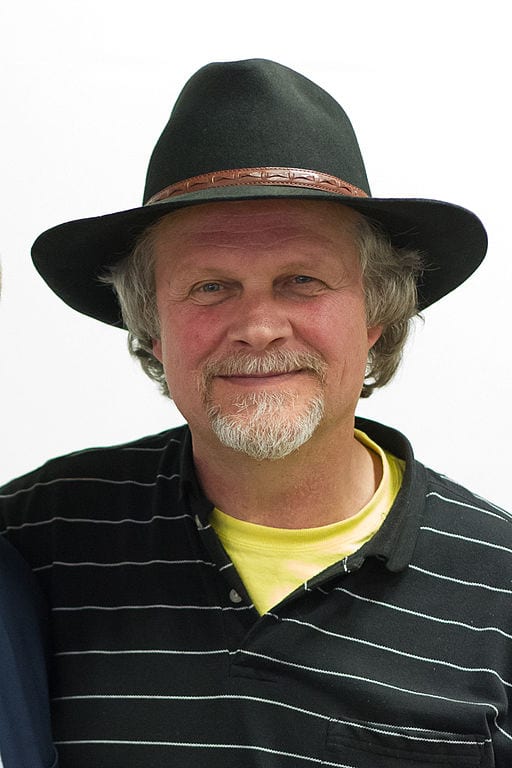
I first ran across former Christian minister and atheist John W. Loftus back in 2006. We dialogued about the problem of evil, and whether God was in time. During that period I also replied to an online version of his deconversion: which (like my arguments about God and time) he didn’t care for at all. I’ve critiqued many atheist deconversion stories, and maintain a very extensive web page about atheism. In 2007 I critiqued his “Outsider Test of Faith” series: to which he gave no response. Loftus’ biggest objection to my critique of his descent into atheism was that I responded to what he called a “brief testimony.” He wrote in December 2006 (his words in blue henceforth):
Deconversion stories are piecemeal. They cannot give a full explanation for why someone left the faith. They only give hints at why they left the faith. It requires writing a whole book about why someone left the faith to understand why they did, and few people do that. I did. If you truly want to critique my deconversion story then critique my book. . . . I challenge you to really critique the one deconversion story that has been published in a book. . . . Do you accept my challenge?
I declined at that time, mainly (but not solely) for the following stated reason:
If you send me your book in an e-file for free, I’d be more than happy to critique it. I won’t buy it, and I refuse to type long portions of it when it is possible to cut-and-paste. That is an important factor since my methodology is Socratic and point-by-point. . . . You railed against that, saying that it was a “handout.” I responded that you could have any of my (14 completed) books in e-book form for free.
Throughout August 2019, I critiqued Dr. David Madison, a prominent contributor to Loftus’ website, Debunking Christianity, no less than 35 times. As of this writing, they remain completely unanswered. I was simply providing (as a courtesy) links to my critiques underneath each article of Dr. Madison’s, till Loftus decided I couldn’t do that (after having claimed that I “hate” atheists and indeed, everyone I disagree with). I replied at length regarding his censorship on his website. Loftus’ explanation for the complete non-reply to my 35 critiques was this: “We know we can respond. It’s just that we don’t have the time to do so. Plus, it’s pretty clear our time would be better spent doing something else than wrestling in the mud with you.” He also claimed that Dr. Madison was “planning to write something about one or more of these links in the near future.” Meanwhile, I discovered that Dr. Madison wrote glowingly about Loftus on 1-23-17:
When the history of Christianity’s demise is written (it will fade eventually away, as do all religions), your name will feature prominently as one who helped bring the world to its senses. Your legacy is secure and is much appreciated.
This was underneath an article where Loftus claimed: “I’ve kicked this dead rodent of the Christian faith into a lifeless blob so many times there is nothing left of it.” I hadn’t realized that Loftus had single-handedly managed to accomplish the stupendous feat of vanquishing the Hideous Beast of Christianity (something the Roman Empire, Muslims, Communists, and many others all miserably failed to do). Loftus waxed humbly and modestly ten days later: “I cannot resist the supposition that my books are among the best. . . . Every one of my books is unique, doing what few other atheist books have done, if any of them.”
These last three cited statements put me “over the edge” and I decided to buy a used copy of his book, Why I Became an Atheist (revised version, 2012, 536 pages) and critique it, as he wanted me to do in 2006. Moreover, on 8-27-07 he made a blanket challenge about the original version of this book: “I challenge someone to try this with my book. I might learn a few things, and that’s always a goal of mine. Pick it up and deal with as many arguments in it that you can. Deal with them all if you can.” His wish is granted (I think he will at length regret it), and this will be my primary project (as a professional apologist) in the coming weeks and probably months.
Despite all his confident bluster, I fully expect him to ignore my critiques. It’s what he’s always done with me (along with endless personal insults). I’m well used to empty (direct) challenges from atheists, based on my experience with Madison and “Bible Basher” Bob Seidensticker, who also has ignored 35 of my critiques (that he requested I do). If Loftus (for a change) decides to actually defend his views, I’m here; always have been. And I won’t flee for the hills, like atheists habitually do, when faced with substantive criticism.
The words of John Loftus will be in blue.
*****
I shall now make some replies to the Introduction (pp. 11-18 in the 2012 revised paperback).
In every chapter I have added to and strengthened my case, sometimes significantly. . . . In other words, it’s a much better book. (p. 11)
Excellent. Maybe this is the ultimate reason — in God’s providence — that I didn’t reply to the original edition. It was to be revised and improved twice. And I want to take on the best arguments that Loftus and atheists have to offer.
Unlike some skeptics who think that Christianity has been debunked so many times before that it’s now time to ridicule it, I still treat it respectfully. (p. 11)
That’s utterly apparent in his comment in his article dated 1-23-17: “I’ve kicked this dead rodent of the Christian faith into a lifeless blob so many times there is nothing left of it.” Looks like his views have, um, “evolved” since 2012. Lots of “respect” there, huh?
[B]elievers who honestly want to know if their faith is true should read the works of those who don’t think it is. You owe it to yourself to read firsthand what someone like me has to say.
Yep. That’s what I’m doing. But I’m a professional apologist, with 38 years’ experience of intense and committed apologetics, including long and extensive interaction with atheist anti-theist polemics. If the average (often woefully theologically uneducated) Christian is to do so, I think it is wise and sensible that they read both sides simultaneously.
And of course, that is what I provide in my dialogues (and articles like this series), with massive input from my dialogue opponents. Only then is it fair and not a stacked deck. Then they can exercise their critical faculties to decide who presents a better and more plausible case. Loftus agrees that such a person should also read the Christian apologists too.
I would turn the tables on this sentiment and also note that it works both ways. To use his framework and switch it around: “atheists who honestly want to know if their rejection of Christianity is correct should read the works of those who don’t think it is. You owe it to yourself to read firsthand what an experienced Christian apologist who responds to your own challenge by critiquing point-by-point — which you claim that you welcome — has to say.”
Loftus talks a good game and would seem to agree with this in principle. But the proof’s in the pudding, isn’t it? The “pudding” is how he reacts when he starts to observe the scores of articles that will be in this series: vigorously but cordially taking on his best arguments, instead of fawning over them as unquestionable Gospel Truth: as he is treated on his own website among his fan club and echo chamber (the “choir”).
If he follows his own noble, high-minded rhetoric about open-mindedness and evidence, etc., he would necessarily have to interact. But if those are mere empty words, only for show, he won’t. Time will tell! I’ll be reporting as to how he has responded or not, as I go along.
Loftus describes (pp. 14-15) how he started out Catholic, then moved through the positions of fundamentalist, moderate, liberal, deist, agnostic, an atheist, and that in the book he “roughly” focuses on evangelical Christianity.
Duly noted. I was an enthusiastic evangelical for 13 years and maintain my great admiration for that sector of Christianity, notwithstanding the usual principled disagreements that a Catholic would have, so that works for me. I will be incorporating Catholic distinctives in this series only where absolutely necessary to make a needed and effective counter-argument that Protestants would disagree with. This is my standard policy in dealing with atheist arguments.
Some of these chapters contain philosophical arguments while others are biblical in nature. (p. 15)
Cool! I love both, so this will be a good mixture.
I present a cumulative case argument against Christianity. (p. 15)
That’s exactly how I view my body of apologetics (50 books and over 2500 blog articles) in favor of Christianity and (in particular) the collection of diverse argumentation I have set forth in critique of atheism.
I consider this book to be one single argument against Christianity, and as such it should be evaluated as a whole. (p. 15; his italics)
This is precisely what I am doing. Obviously, most people wouldn’t have either the time or motivation (even if they had the ability) to deal in such comprehensiveness with a 536-page book, and I highly doubt that anyone has done so, for these reasons. But I have all those things — by God’s grace –, as a full-time apologist.
Loftus notes (pp. 15-16) that many Christian professors have struggled with significant doubts and crises of faith.
This comes as no big news flash. We’re well aware of that and most of us (including myself, but only very rarely, by God’s grace) experience it, to various degrees. St. Teresa of Calcutta (Mother Teresa) had long and agonizing stretches of the “dark night of the soul.” So have many other Christians. C. S. Lewis (in the view of most Christians, the greatest apologist of the 20th century) wrote almost an entire book about it (A Grief Observed). The book of Job is devoted to this very thing.
This is one major reason why apologists like myself do what we do: we grapple with the doubts and objections seek to provide acceptable and plausible answers or solutions to them. We help Christians to have a stronger faith, to know and to be able to defend their faith (1 Peter 3:15) and “survive” objections such as those that Loftus will be hurling throughout his book.
Atheists tend to view us apologists (to put it mildly) as mere rationalizers, sophists, and special pleaders (i.e., fundamentally dishonest), but what we do is every bit as intellectually honest and legitimate as what Loftus feels he is doing in this book. He is sincerely arguing a perspective of doubt against Christianity, and we are sincerely maintaining that Christianity is both true and rational, and can be fully, confidently accepted by “modern, civilized, scientifically literate people”: the same ones whom he claims ought to reject it (p. 15).
It’s all about (in apologetics and atheist anti-theist polemics) the arguments and their relative strength. Bring them on! I am interacting, and will with counter-replies. But we don’t know yet how Loftus will react.
The major reason why I have become an atheist is because I could not answer the questions I was encountering. (p. 17; italics his)
One of the major reasons why I became an apologist is to offer solid Christian answers to questions such as these, that are causing some folks (like John Loftus) to lose faith and to forsake Christianity.
***
Photo credit: John Loftus at SASHAcon 2016 at the University of Missouri; Mark Schierbecker (3-19-16) [Wikimedia Commons / Creative Commons Attribution-Share Alike 4.0 International license]
***













